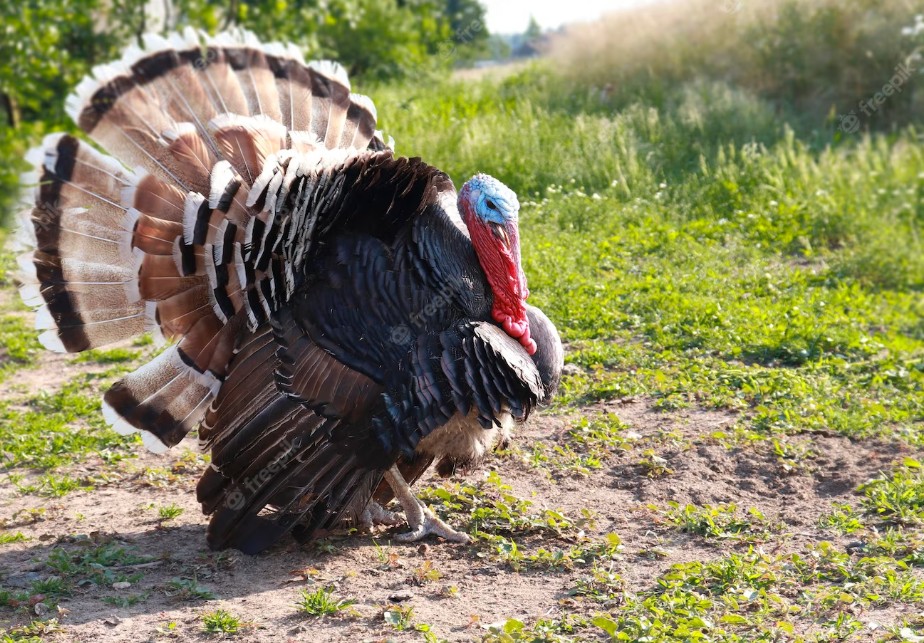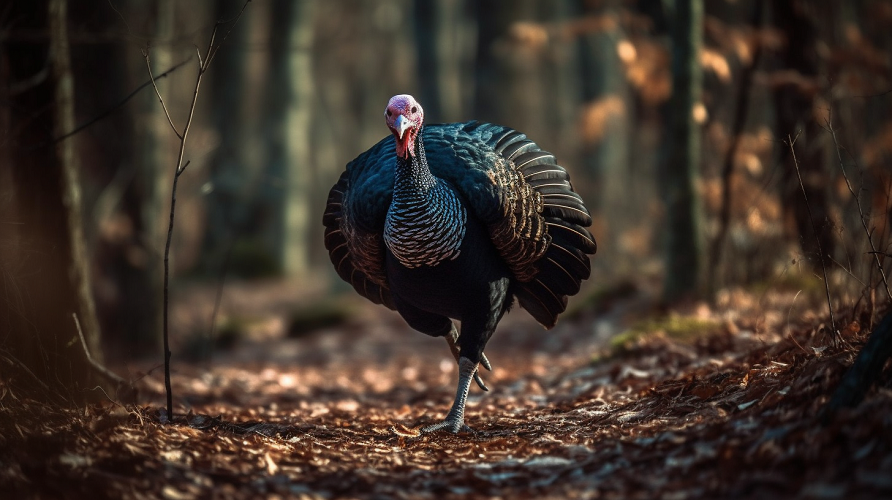What do wild turkeys eat


As an avid outdoorsman and turkey hunter, it is imperative to recognize that comprehending the dietary habits of wild turkeys is crucial for triumphant hunting. In North America, wild turkeys are omnivorous and consume a wide array of foods throughout the year, which undoubtedly influences their conduct. Knowing what do wild turkeys eat can be particularly helpful for successful hunting.
Diet and Turkey Health: What do wild turkeys eat
During the spring season, turkeys primarily rely on insects as a protein source. They chow down on anything from grasshoppers to caterpillars, which cater to their protein necessities. Moreover, insects are vital for wild turkey poults, as they provide the necessary protein required for growth and development. Understanding fully what wild turkeys eat during this season can aid in better hunting strategies.
As the fall season approaches, turkeys switch to consuming more plant matter. They look for berries, acorns, and nuts, such as hickory nuts and beechnuts. These foods provide crucial nutrients and energy that turkeys need to brace themselves for the upcoming winter months. In addition, they will also nibble on various seeds, such as those found in grasses, weeds, and flowers. Knowledge of what wild turkeys eat in the fall can guide hunters to the best locations.

Winter Survival: Scavenging for Sparse Resources
During the winter, turkeys struggle to find food, and they depend heavily on stored fat reserves to survive. They scavenge through snow and ice to locate remaining seeds, berries, or nuts. Besides, they nibble on buds and twigs from trees and shrubs, which provide essential nutrients and energy during the colder months. Deciphering what wild turkeys eat in the winter is essential for understanding their survival tactics.
Habitat Influence: How Environment Shapes Turkey Diet
However, it’s important to understand that the diet of wild turkeys is significantly influenced by the habitat in which they reside. For example, turkeys that inhabit forested areas have a more extensive range of food options, such as nuts, berries, and insects. Conversely, turkeys that reside in open grasslands or agricultural fields will primarily consume grains and seeds. Knowing what wild turkeys primarily eat in different habitats can help track them more effectively.
It is noteworthy that the diet of wild turkeys has a significant impact on their health and reproductive success. In regions where food is scarce, turkeys may struggle to maintain their body weight and produce healthy eggs, leading to reduced fertility rates and an overall population decline. Consequently, understanding what wild turkeys eat is crucial for maintaining their population health.
Hunters should consider the seasonal changes in wild turkey diet, which can give them an advantage in the field. During the spring season, when turkeys primarily feed on insects, hunters should focus on calling and decoy strategies in areas with high insect populations. In the fall season, when turkeys feed heavily on acorns, hunters should search for areas with abundant oak trees. By concentrating on the birds’ preferred food sources, hunters can increase their likelihood of success. Effective hunting relies heavily on knowing what wild turkeys eat in different seasons.
On the flip side, areas with abundant food resources can support large populations of wild turkeys, allowing them to flourish and reproduce at a healthy rate, contributing to the overall health of the ecosystem. Thus, being aware of what wild turkeys eat can help preserve their population balance.
Human Impact on Wild Turkey Eating Habits
It’s also vital to acknowledge the impact that human activities can have on the diet of wild turkeys. For instance, feeding turkeys with human food can cause them to rely on unnatural food sources, leading to a decline in their ability to forage for natural foods. Consequently, this can lead to a decline in the overall health of the population. One should always consider what wild turkeys eat naturally to avoid interfering with their dietary habits.
Final Thoughts: Why Knowing Turkey Diet Makes You a Better Hunter
Wild turkeys in North America have a varied and adaptable diet. Their diet changes throughout the year, depending on the availability of food sources. As a hunter, understanding the seasonal changes in turkey diet can give you a significant advantage in the field. By focusing on the birds’ preferred food sources, you can increase your chances of success and bring home a trophy bird for the dinner table. Grasping what wild turkeys eat can make a substantial difference in hunting outcomes.
- 111
- 14202



